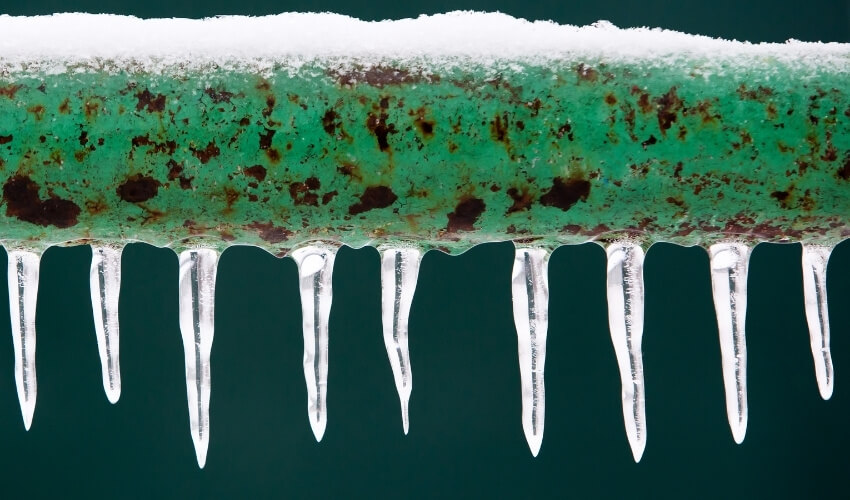A leaky pipe can be a real pain, both literally and figuratively. Not only is the constant dripping sound annoying,

Even inside plumbing can freeze when under freezing temperatures. When the temperature drops, you are prone to pipes freezing or breaking.
Bursting pipes in the winter have become one of the most frequent causes of property damage and can cause thousands of damage.
The worst prone pipe can be found in a warm interior space like a basement, atrium or garage.
As the weather gets colder, it's important to take steps to prevent your pipes from freezing.
Here are a few tips for preventing your pipes from freezing this winter.
Water expands as it freezes, which exerts tremendous pressure on whatever is containing it—including your pipes.
That’s why frozen pipes are such a big problem; when the water inside them freezes, it can cause the pipes to burst.
And once the water starts flowing out of a burst pipe, it can do a lot of damage very quickly.
Knowing how pipes freeze can help you take steps to prevent it from happening in your home or business.
Pipe freezing mostly occurs when the outside temperature suddenly drops, causing the water inside the pipes to cool down quickly.
If there is any moisture inside the pipes (from condensation, for example), that water will start to freeze.
Once one section of a pipe freezes, it provides a “ nucleation site ” for more ice to form. And as more ice builds up, it puts pressure on the pipe walls, causing them to crack and/or burst.
If you turn on your faucet and only a trickle comes out, this is a good indicator that your pipes may be frozen.
If you suspect that your pipes are frozen, there are a few things you can do to thaw them.
If you find any leaks, be sure to contact a professional plumber right away as this could indicate more serious damage.
There are a few simple things you can do to keep your pipes from freezing this winter.
Don't wait for your frozen pipes to burst or to cause serious damage. Check out our commercial plumbing service
If you've tried to thaw your pipes but they continue to freeze or if you have a burst pipe, it's time to call in the professionals.
Our team of experienced plumbers at Somerville Plumbing can help you repair or replace any damaged pipes.
We'll also take steps to prevent future freezing so you can rest assured your pipes will be safe all winter long.
Give us a call today to schedule a consultation. We're always happy to answer any questions you may have about your home's plumbing.
By taking some simple precautions, you can prevent your pipes from freezing this winter.
Be sure to keep your thermostat set to the same temperature during the day, let the cold water drip from faucets, and open cabinet doors in kitchens and bathrooms.
You should also add insulation, use electric heat tape or thermostatically controlled heat cables, know where your main shut-off valve is located, and never try to thaw a frozen pipe with an open flame.
Following these tips will help you avoid costly repairs and keep your plumbing system functioning properly all winter long.